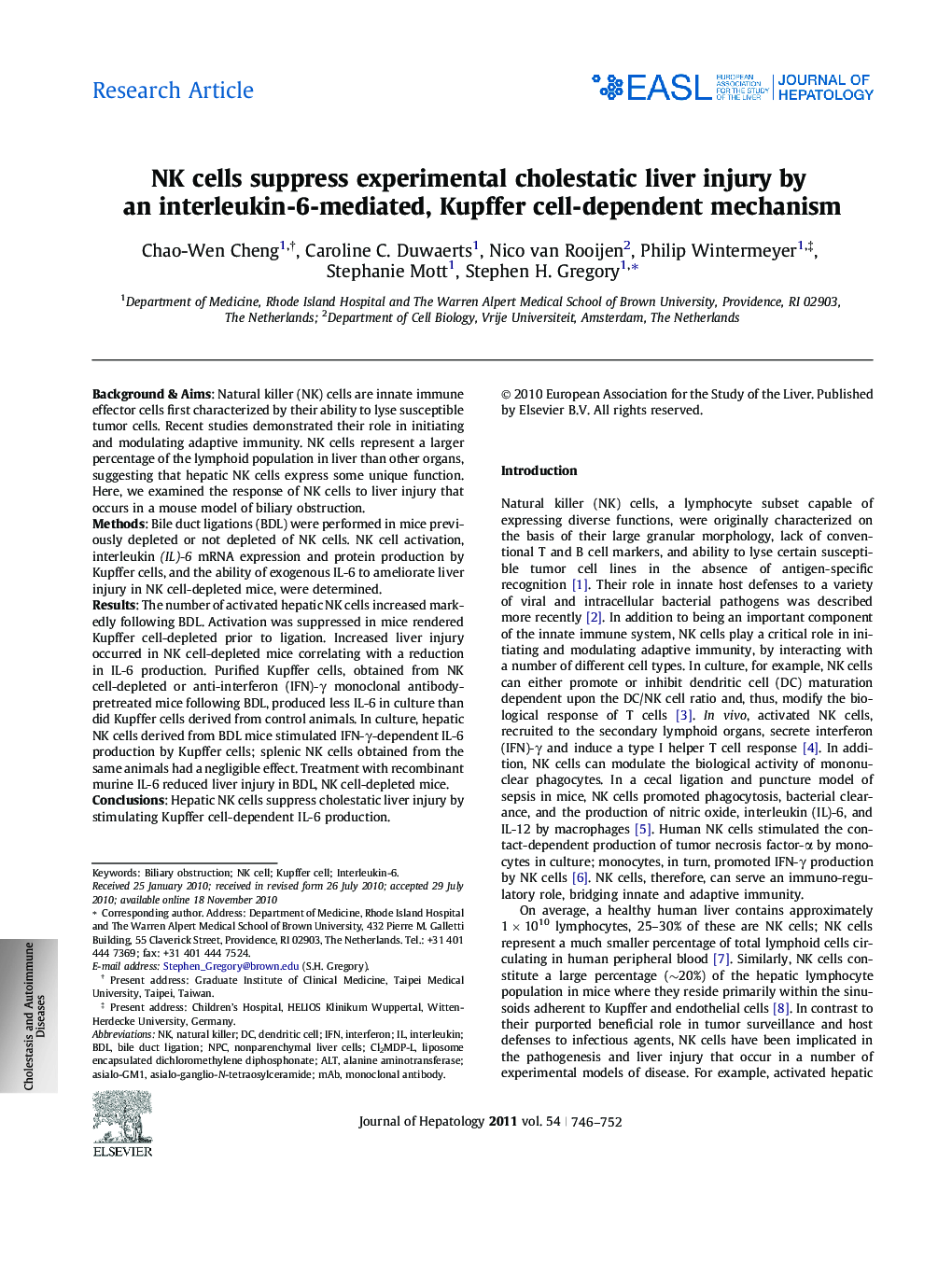| Article ID | Journal | Published Year | Pages | File Type |
|---|---|---|---|---|
| 6108572 | Journal of Hepatology | 2011 | 7 Pages |
Background & AimsNatural killer (NK) cells are innate immune effector cells first characterized by their ability to lyse susceptible tumor cells. Recent studies demonstrated their role in initiating and modulating adaptive immunity. NK cells represent a larger percentage of the lymphoid population in liver than other organs, suggesting that hepatic NK cells express some unique function. Here, we examined the response of NK cells to liver injury that occurs in a mouse model of biliary obstruction.MethodsBile duct ligations (BDL) were performed in mice previously depleted or not depleted of NK cells. NK cell activation, interleukin (IL)-6 mRNA expression and protein production by Kupffer cells, and the ability of exogenous IL-6 to ameliorate liver injury in NK cell-depleted mice, were determined.ResultsThe number of activated hepatic NK cells increased markedly following BDL. Activation was suppressed in mice rendered Kupffer cell-depleted prior to ligation. Increased liver injury occurred in NK cell-depleted mice correlating with a reduction in IL-6 production. Purified Kupffer cells, obtained from NK cell-depleted or anti-interferon (IFN)-γ monoclonal antibody-pretreated mice following BDL, produced less IL-6 in culture than did Kupffer cells derived from control animals. In culture, hepatic NK cells derived from BDL mice stimulated IFN-γ-dependent IL-6 production by Kupffer cells; splenic NK cells obtained from the same animals had a negligible effect. Treatment with recombinant murine IL-6 reduced liver injury in BDL, NK cell-depleted mice.ConclusionsHepatic NK cells suppress cholestatic liver injury by stimulating Kupffer cell-dependent IL-6 production.
